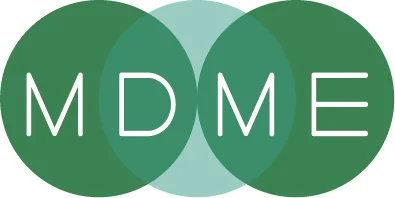Process
-Free initial consultation and assessment of needs.
-Proposal and action plan.
-Data gathering to support curriculum refinement.
-Development activities.
-Feedback and recommendations for further practice.
Learning with MDME begins with a free, initial consultation and assessment of needs and wants. Based on this conversation, a proposal and action plan will be developed for review. Depending on the scope of the work further data gathering and assessments may include: individual and group interviews, pen and paper assessments and evaluations, and review of available data, which could be anything from performance evaluations to report cards. This information will inform refinement of the curriculum. The goal is for MDME to fully understand the strengths, areas of growth, and feelings of the client to match the plan to the specific needs.
Learning can be delivered in a single topical session or an ongoing effort through a thoughtful collection of workshops, seminars, team building exercises, guided work sessions and other opportunities to learn together. The ultimate outcome of development with MDME is an empowered and motivated individual or group. Empowered individuals act with a strong understanding of personal strengths and a new set of learned skills and reinforced philosophies. Motivated teams provide authentic and inspiring efforts to the workplace. These dynamics engender a more positive organizational culture and increased work potentials and outcomes.
Expertise
For Adults
-Meta-cognition, self-awareness
-Team building
-Visualization support
-Empathetic communication
For Teachers
-Motivation theory
-Character based educational techniques
-Service learning
-Critical consciousness
-Aligning curriculum with the standards
-Restorative justice
For Parents and Adolescents
-Self-awareness
-Motivation
-Study skills
-Mentoring/Coaching
-Communication
-Problem solving and decision making
-Parenting adolescents
-Positive thinking
-Mindful/Meditative techniques
-Breathing techniques
-Finding balance
-Differentiated teaching methods
-Project based learning and cross-curricular methods
-Creating behavioral and academic plans
-Classroom/behavior management
-Curriculum mapping
-Adolescent development
-Values and skills assessment
-Tutoring/Teaching for a variety of subjects
-Stress reduction
-Academic and behavior plans
-Finding balance
-Educational consultations-navigationg schools and schooling, K-College

